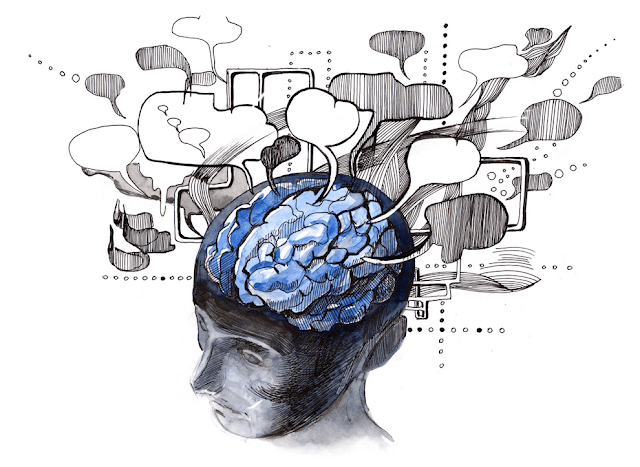How Air Pollution Affects Human Health at a Molecular Level
 |
| image credit: veeterzy on Unsplash |
Air pollution threatens the health of more than 90% of the world’s population — and it all starts with changes triggered at the molecular level. In a newly published study which followed pollution levels before, during, and after the 2008 Beijing Olympic Games, researchers at the University of Buffalo found that 69 metabolites were affected when air pollution changed.
Metabolites are the end products of the body’s metabolism as well as the results of environmental exposures. Beijing, a city numbering over 21 million people, is one of the most polluted cities in the world. But during the 2008 Olympic Games, local authorities enacted temporary measures that cleared the air — at least for the duration of the games.
While most of the world’s population focuses their attention on global terrorism and economics, scientists are becoming increasingly alarmed at how air pollution affects human health. Research indicates that 5.5 million people around the globe die prematurely every year due to indoor and outdoor air pollution.
Metabolites are the end products of the body’s metabolism as well as the results of environmental exposures. Beijing, a city numbering over 21 million people, is one of the most polluted cities in the world. But during the 2008 Olympic Games, local authorities enacted temporary measures that cleared the air — at least for the duration of the games.
While most of the world’s population focuses their attention on global terrorism and economics, scientists are becoming increasingly alarmed at how air pollution affects human health. Research indicates that 5.5 million people around the globe die prematurely every year due to indoor and outdoor air pollution.
People suffer both short-term and long-term health effects from air pollution, and it causes diseases and complications in nearly every system of the body. Some of these include:
- Respiratory and cardiovascular diseases
- Neuropsychiatric complications (i.e., seizures, attention deficits, palsies, migraine headaches, and mood disorders)
- Eye irritation
- Skin diseases
- Cancer
- Infertility
- Birth defects
- Premature death
 |
| image credit: Desmond Simon on Unsplash |
For their study, Lina Mu, an Associate Professor of epidemiology and environmental health, along with colleagues at the University of Buffalo, studied data on 201 adults. The authors performed metabolomics analysis on a subset of 26 non-smokers aged 30 to 65 before the games (when air pollution was at its highest), during the games (when air pollution was low), and after (when air pollution returned to their alarmingly high levels).
The authors used a technique called the “omics” method — based on network analysis — to record changes in all detectable metabolites simultaneously (886 for this study), rather than examining these molecules one by one.
“We found that these metabolites together depicted a relatively comprehensive picture of human body responses to air pollution,” said paper co-author Rachael Hageman Blair, associate professor of biostatistics at UB.
When air pollutants are inhaled, they immediately stimulate the respiratory system, particularly the lungs and nose. Some cell membranes get damaged or even broken, disrupting the secretion of those cells. In the process, the damaged cells may send out signals to other organs and cells in the body, triggering biological responses. Basically, all these broken membranes, secreted products, and signaling molecules are metabolites.
“Think of our body as a society. These metabolites fulfill different positions, such as teacher, farmer, worker, soldier. We need each one functioning properly in order to maintain a healthy system,” said in a statement.
The authors used a technique called the “omics” method — based on network analysis — to record changes in all detectable metabolites simultaneously (886 for this study), rather than examining these molecules one by one.
“We found that these metabolites together depicted a relatively comprehensive picture of human body responses to air pollution,” said paper co-author Rachael Hageman Blair, associate professor of biostatistics at UB.
When air pollutants are inhaled, they immediately stimulate the respiratory system, particularly the lungs and nose. Some cell membranes get damaged or even broken, disrupting the secretion of those cells. In the process, the damaged cells may send out signals to other organs and cells in the body, triggering biological responses. Basically, all these broken membranes, secreted products, and signaling molecules are metabolites.
“Think of our body as a society. These metabolites fulfill different positions, such as teacher, farmer, worker, soldier. We need each one functioning properly in order to maintain a healthy system,” said in a statement.
 |
| image credit: Carolina Pimenta on Unsplash |
Two major metabolic signatures were identified: one consisting of lipids, the other made up of dipeptides, polyunsaturated fatty acids, taurine, and xanthine. These molecules are produced by the body in response to cellular stability, oxidative stress (which breaks cell membranes), and inflammation (triggered by lipid molecules released by broken cell membranes).
“The good thing is that we also found some protective molecules, namely antioxidants, also increased when air pollution is high, indicating our body has a defense system to reduce harm,” Mu said.
According to Mu, studies like this provide a broader view of the molecular mechanisms involved in the interactions between air pollution and the human body. In the future, it might be possible to identify individuals who are more vulnerable to air pollution — these people could be then guided to avoid exposure or receive custom treatment.
The findings appeared in the journal Environmental Health Perspectives.
“The good thing is that we also found some protective molecules, namely antioxidants, also increased when air pollution is high, indicating our body has a defense system to reduce harm,” Mu said.
According to Mu, studies like this provide a broader view of the molecular mechanisms involved in the interactions between air pollution and the human body. In the future, it might be possible to identify individuals who are more vulnerable to air pollution — these people could be then guided to avoid exposure or receive custom treatment.
The findings appeared in the journal Environmental Health Perspectives.
Source: zmescience.com



Σχόλια
Δημοσίευση σχολίου